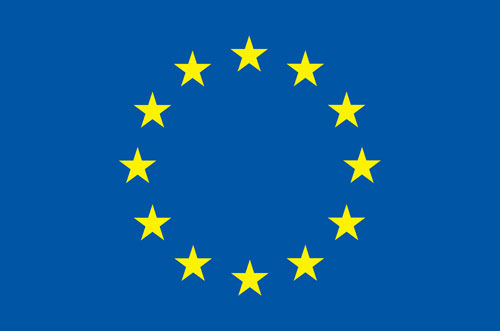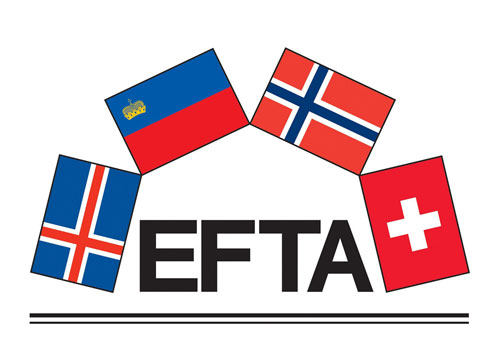EU/EEA work
Norway is not an EU member, but it is greatly affected by EU policies, especially as a result of the EEA Agreement.

The EU Flag
Norwegian foreign policy is essentially the government’s prerogative, which is to say its area of responsibility, but the Storting over time has become a key actor in work involving the EU and EEA. The Storting, Norway’s parliament, is involved in two main ways:
- Through its European Consultative Committee, the Storting is an advisory body to the government on EU/EEA issues.
- EU issues which concern the EEA, and which involve Norwegian legislative amendments, future budgetary implications or matters of particular importance, are to be taken up by the Storting.
EEA Agreement
Norway’s formal relations with the European Union (EU) are governed primarily by the European Economic Area (EEA) Agreement. The EEA Agreement is an agreement between EU member states and the European Free Trade Association (EFTA) countries of Norway, Iceland and Liechtenstein. Switzerland is also a member of EFTA, but has chosen to remain outside the EEA. The purpose of the agreement is to strengthen trade and economic relations between the EU and the EEA countries. The agreement provides EEA countries access to the EU internal market, and is based on the principle of “four freedoms”. National barriers shall not impede the free flow of:
- goods
- labour
- services
- capital
Also in the agreement are provisions on social policy, consumer protection, environmental protection and gender equality. Examples of EU policy areas that are not incorporated into the EEA Agreement are foreign affairs, finance, agriculture and fisheries. The EEA Agreement is considered a dynamic agreement, however, as it is continually updated and expanded.
The EEA Agreement is Norway’s most important form of association with the EU, but Norway also cooperates with the EU on policy areas not covered by the agreement – formally speaking, on the Schengen Agreement (justice and police matters) and foreign and security policy. There are extensive informal contacts as well.
EEA institutions
The EEA institutions administer the EEA Agreement. These institutions are organised in a “two-pillar” structure. The EU’s institutions constitute one pillar, and EFTA’s the other.
The key EU institutions are the European Council, the European Commission, the European Parliament and the European Court of Justice. The EEA Agreement does not give Norway voting rights in EU decision-making bodies, but Norway is represented through the EFTA pillar. The EFTA pillar’s most important institutions are the EFTA Surveillance Authority (ESA) and the EFTA Court.
Outside the two pillars are the joint EEA Council and the EEA Joint Committee. These are the link, or superstructure, between the EU and EFTA pillars. The EEA Council is the highest political body governing cooperation between the EU and EEA countries, and is responsible for political decisions on implementation of the agreement. The EEA Joint Committee is the central executive body, and is responsible for carrying out the EEA’s work on a regular basis.
European Consultative Committee
The European Consultative Committee is the Storting’s body for consultations with the government on topical EU/EEA affairs. The committee deals mainly with EU regulatory acts (directives and regulations) due to be considered by the EEA Joint Committee. Provisions governing the committee’s activities are set forth in section 17 of the Storting’s Rules of Procedure.

The EFTA logo
Representing the Storting on the European Consultative Committee are members of the Storting’s Standing Committee on Foreign Affairs and Defence and the Storting’s Delegation to the EFTA and EEA Parliamentary Committees. Other standing committees are called in if the case at hand concerns their area of focus. The Minister of Foreign Affairs participates on behalf of the government, with other ministers attending if needed. The chair of the Standing Committee on Foreign Relations and Defence heads the European Consultative Committee.
The European Consultative Committee meets in advance of the EEA Joint Committee’s consideration of issues. The government submits the issues to be discussed. The members of the consultative committee advise the government what stand to take, but it is up to the government to take a final decision on Norway’s behalf. The government is not required to follow the committee’s advice, though parliamentarism dictates that the government is dependant on the Storting’s confidence.
The meetings of the European Consultative Committee are closed unless some other determination if made. Minutes of meetings are made public after the meetings are concluded, except for portions exempt from public scrutiny. One year after a meeting, the minutes are made public in full.
Standing committees
In recent years, the Storting’s 12 permanent committees have been given a more important role in the EU/EEA work. The committees have the right to follow EU/EEA issues that fall within their purview. They are permitted to pose questions in writing about EU/EEA matters to the minister directly responsible. If backed by a majority of their members, the committees also have an opportunity to submit statements to the European Consultative Committee.
The decision-making process
When the EU has approved a regulatory act within a policy area covered by the EEA Agreement, the matter is sent to the EFTA Secretariat. There a determination is made as to whether the issue is pertinent to the EEA Agreement. It then proceeds to the EEA Joint Committee, which takes a stand on whether to incorporate the provision into the EEA Agreement. If incorporated, it is up to the EEA countries to implement the provision nationally.
Pursuant to the the Constitution (Article 26, second paragraph, regarding treaty issues), the government must obtain the Storting’s consent to approve the EEA Joint Committee’s decision if a legislative amendment is required, if there are future budgetary implications or if the issue is of particular importance. Such cases are presented to the Storting in the form of a proposition, which is considered according to normal procedure. As a result of the EEA Agreement, the number of legislative proposals considered by the Storting has increased.
Treaty violations
Through the EEA Agreement, Norway is required to allow the ESA, and ultimately the EFTA Court, to ensure that Norwegian authorities and businesses comply with the agreement. Norway is not empowered to exercise a veto in relation to the EU – that is, to block an EU provision – but it is up to Storting and the government to determine whether Norway accepts the rule changes that are issued. This is called the right of reservation.
The ESA makes certain that Norway complies with the provisions that Norway has endorsed. On a number of occasions Norway has been the object of complaints filed with the ESA, and judgments have been issued against it in the EFTA Court – for example, with regard to differentiated employer contributions to social security and reversionary rights. An EFTA Court judgment cannot be appealed. The EFTA Court has no authority to sanction EEA countries, but a judgment presents countries with the following alternatives:
- Negotiate new provisions in the EEA Agreement.
- Adapt national legislation in line with the judgment.
- Terminate the EEA Agreement.
Briefings
It is a stated goal that the government shall consult with the Storting and brief it on topical EU/EEA affairs from an early stage. To that end the Minister of Foreign Affairs holds semi-annual briefings in the Storting on European policy. The minister’s briefing is presented orally, and is not based on specific proposals. The presentation is usually followed by a debate in which members of the Storting may comment on the government’s European policy.
The Storting’s EU/EEA delegations
Most members of the Storting are members of one or more international delegations. For work related to the EU/EEA, the Storting delegations to the following institutions are relevant:
See also
Last updated: 19.10.2018 13:34